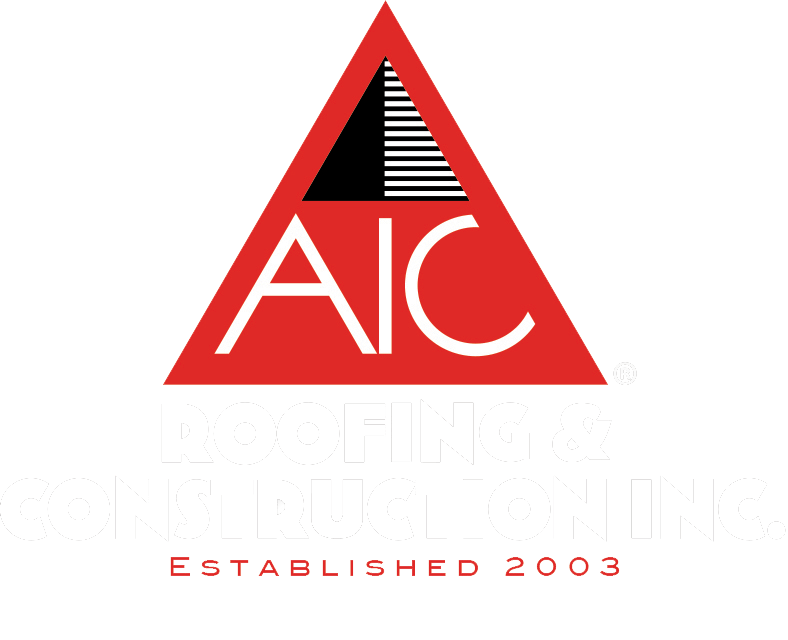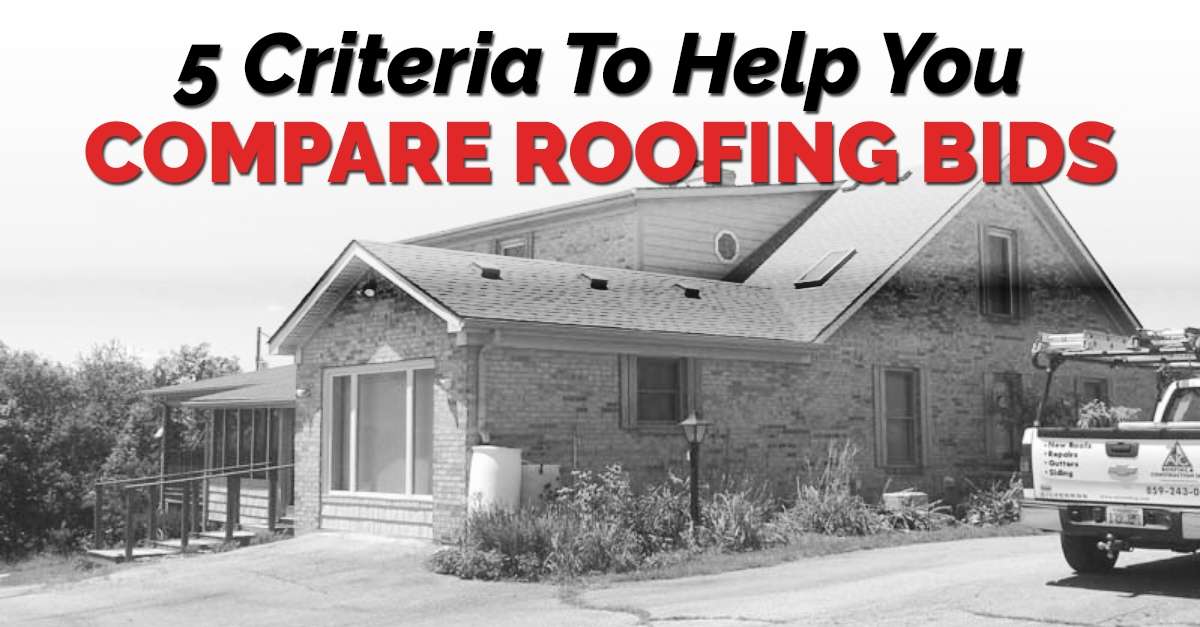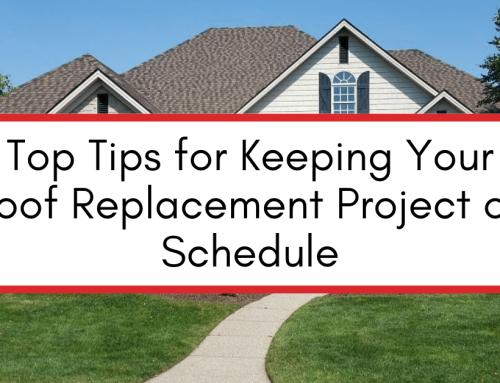You’ve found some trustworthy roofing contractors and gotten bids – now what? Bids, materials, and contractors are not created equal. To make an accurate apples-to-apples comparison, it’s essential to evaluate your bids using the same or similar criteria.
This article breaks down the five areas you should be comparing your roofing bids against to ensure you pick the right roofing contractor for your home. You’ll learn about differences in materials, warranties, customer service – and what questions to ask before hiring a roofer for your roof replacement.
1. What materials are being used?
Materials used in your roof replacement can encompass more than just shingles – and differences will drastically impact your price. If a roofing contractor comes in way below the others, it’s essential to ensure they’re using the same quality of material quoted on your other bids.
The top three materials to examine when evaluating your bids are shingle brand name, shingle dimension/aesthetic, and deck protection.
- Shingles can come from a variety of manufacturers. Shingle brand name can give you peace of mind regarding production quality.
- Shingle dimension and aesthetic encompass the designer qualities of your shingle selection. There are entry-level, mid-grade, and premium. Depending on the quality you choose, there may be different installation requirements.
- Lastly – deck protection. Your deck is the term used to describe the base layer of your roof. The plywood that shingles are affixed to. Protecting the deck layer is critical to ensuring a long-lasting roof. Different types of deck protection include felt paper, synthetic, and premium underlayment.
2. What type of warranty is offered on the roofing materials?
There are two types of warranties you’ll want to consider – workmanship and manufacturer.
Workmanship warranties are from the roofing contractor. This ensures your roof against any faulty practices during installation. Most reputable companies stand by their work by offering a 10- or 20-year workmanship warranty (like we do at AIC Roofing).
Manufacturer warranties relate to the materials, and specifically the shingles being used. Typical warranties include material defect and material defect plus labor. Material defect plus labor includes replacing your roof if it fails due to a shingle defect, plus the labor associated with that effort. It’s important to note that the shingle quality (mid or high) you choose does not necessarily impact the warranty.
3. What are installation specifics?
These specifics don’t necessarily get mentioned on a bid – yet they are critical to your roof replacement! Asking specific questions regarding installation will reveal more about the quality of your roofing contractor’s techniques.
We would advise any homeowner to ask three critical questions regarding installation:
- Is my flashing getting replaced (metal located at walls and around chimneys)?
- How many nails are used per shingle?
- Are you tearing off my roof or overlaying?
Replacing your flashing will help maximize the life of your roof and prevent any leaks from occurring. This is an easy area for some contractors to cut corners and compete on price.
Asking your contractor how many nails are used to affix each shingle gives you insight into the quality of their workmanship. We recommend using at least 5 nails per shingle. This ensures the shingle is fastened correctly.
Get clarity on whether a contractor quotes a tear-off vs. overlay roof replacement. A tear-off roof replacement means the old shingles and roof are entirely removed and new shingles are affixed. An overlay is when new shingles are attached directly to the old roof. An overlay is significantly cheaper than a tear-off but comes with its own set of risks. An overlay creates more heat in your roof, causing dry rot on your roof decking. It does not address any underlying issues in your old roof – including leak sites, rotten sheeting, etc. A roof installed as an overlay also has a much shorter life span.
4. Is someone supervising the job site?
This may seem small, but a dedicated site supervisor can significantly impact your overall roof replacement experience. Having a site supervisor ensures that someone is assigned to monitoring installation and ensuring your property is not harmed. Monitoring your property includes:
- Protecting your landscaping
- Ensuring the job is cleaned up (nails, miscellaneous materials, etc.)
- Verifying the replacement is being completed exactly how it was agreed to
5. Is it a reputable roofing contractor?
When evaluating a company’s reputation, it’s essential to read through their reviews. When evaluating company reviews, pay special attention to the lowest-rated reviews. Reading the lowest-rated reviews can give you insight into what went wrong and if/how the company dealt with the issue. It will also help you see if there is a common theme – is there a particular issue many customers reported as a concern? Checking out a roofing contractor on the Better Business Bureau (BBB) can also give you insights into complaints against the roofing contractor.
Lastly, a strong internet presence (do they post on Facebook, YouTube, Yelp) usually shows the company cares about their reputation. A company who takes reviews and social media presence seriously will resolve any customer complaints to prevent bad reviews.
Evaluating bids is typically your last step before selecting a roofing contractor. It’s vital to consider all relevant factors before making your selection. Choosing a reputable company can help prevent issues from arising later.
AIC Roofing has replaced over 10,000 roofs in Lexington, KY, and the surrounding area. Our knowledgeable staff perform free inspections and can give you honest evaluations based on our many years of experience. Contact us today to get started!
3-tab attics barns chimney choosing a contractor commercial cost curb appeal DIY estimate financing flashing flat roof GAF glossary gutter replacement gutters gutter size gutter system ice dams inspections insurance missing shingles roof design roofing materials roofing system roof leak roof maintenance roof materials roof repair roof replacement roof shapes roof types shingle ratings shingles siding siding materials siding replacement skylights storm damage underlayment ventilation warranty winter







